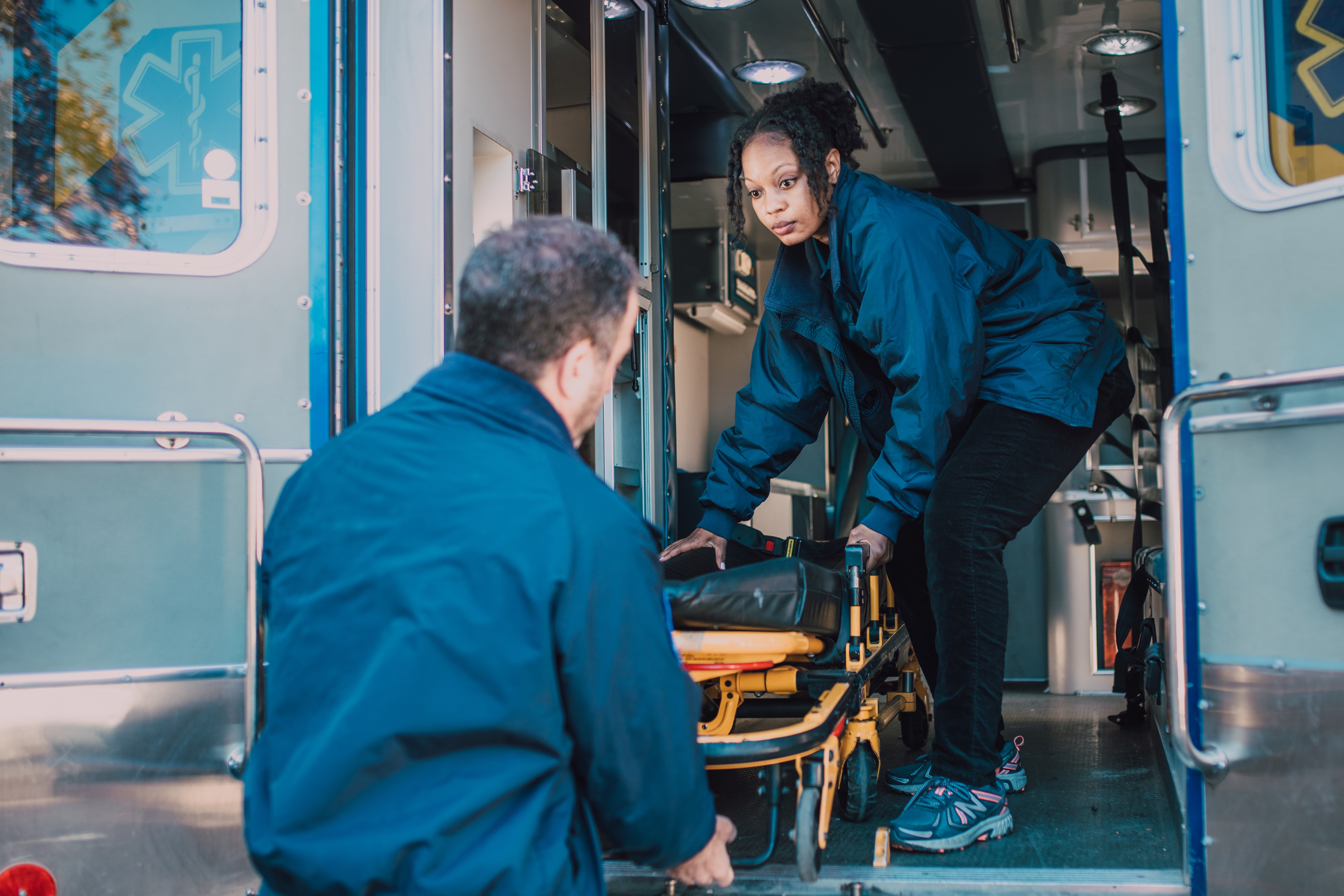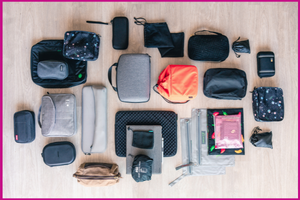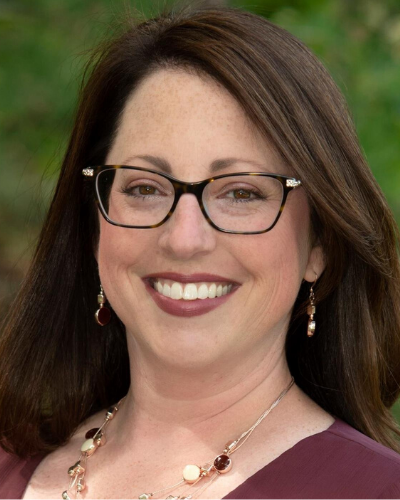What is in Your Hospital “Go Bag"
 My mom woke up feeling unwell last month. She had been having some difficulty breathing during the night and was still feeling ill in the morning.
My mom woke up feeling unwell last month. She had been having some difficulty breathing during the night and was still feeling ill in the morning.
Unfortunately, she didn’t let my sister Alyson and me know until noon the next day (!), a Saturday. Her regular doctor’s office was closed, and she refused to let us take her to the emergency room. So, we compromised and drove to a nearby urgent care center.
Uh oh… after I dropped her off (they wouldn’t let me come in due to Covid restrictions), she called to say that she had forgotten her insurance cards and they wouldn’t see her. At that point, she had been symptomatic for long enough that the emergency room was the only remaining option.
Again, I was not permitted to come in, so I left her at the door and drove home to wait.
From there, things continued to get more complicated: Her cell phone was dying, and she didn’t have her charger; she had nothing to read while waiting; she hadn’t eaten in several hours. And she had to share her complete medical history and medication regimen from memory with hospital staff.
In the end (four hours later!), she was diagnosed with a slight case of pneumonia, and we were able to take her home. She’s recovering well, but it did get the wheels turning for Alyson and me: We need to be better prepared for emergencies!
Emergencies Are Never Anticipated
According to the Administration for Community Living, one in seven Americans over the age of 65 will spend at least one overnight in a hospital this year. Some of these stays are prearranged, of course, but many are not; they arrive without warning following an accident or unanticipated medical event.
Ironically, and despite how much time Alyson and I spent on our soapbox talking and writing about the need for preplanning rehab stays and long-term care, we were totally caught off guard by our mom’s emergency.
 Next time, we will be ready with a hospital “Go Bag.”
Next time, we will be ready with a hospital “Go Bag.”
As the name suggests, a Go Bag is a preassembled list of important information and items that you will want to have ready in the event your loved one needs to go to the hospital. The keyword is “preassembled,” because, during an emergency, you probably won’t have the time or presence of mind to think of everything you may need.
File of Life
The File of Life — the primary element of a Go Bag — is a folder that emergency responders know to look for (or that you can bring with you if you go to the hospital). It is kept in plain sight, usually on a refrigerator, and has all of the basic information medical professionals need to evaluate and treat your loved one.
It should include:
o Existing conditions or chronic illnesses
o Current medications (including over-the-counter medications taken regularly) with dosages and schedules
o Allergies to any medications and food sensitivities
o Regular healthcare providers (names and phone numbers), including the primary care physician and any specialists, along with the specific conditions each specialist is addressing
o Special dietary considerations, such as low sodium, gluten-free, kosher, vegetarian
o Communication issues, such as confusion, speech or hearing impairments, language preferences
o Emergency contact information for trusted family members or friends
Other information to have copies of in your Go Bag:
 o Insurance card (front and back, as authorization numbers, often are on the reverse)
o Insurance card (front and back, as authorization numbers, often are on the reverse)
o Medicare / Medicaid card
o Medical power of attorney / Healthcare Proxy
o Durable power of attorney
o Do-not-resuscitate order (DNR)
o Living Will
Having this information ready to grab and in one place is incredibly helpful, especially since in many cases, the older adult is unable to share this information on their own. They may have cognitive or language impairments or may not even be awake and lucid.
Bio:
 Michelle Woodbrey is the Chief Executive Officer and co-owner of 2Sisters Senior Living Advisors, a local, woman-owned senior care placement and referral service. She is a Certified Senior Advisor, a Certified Dementia Practitioner, and a Certified Placement & Referral Specialist as well as a public speaker. She has presented at conferences for the Alzheimer’s Association, the Massachusetts Councils on Aging, Hope Dementia & Alzheimer’s Services and the Massachusetts Assisted Living Association (MassALA), among others. Michelle is the Vice President of the Cape Cod Women’s Association and sat on the board of the South Shore Conference for Women and the National Board of the National Placement and Referral Alliance (NPRA). Michelle is passionate about helping adult children to determine a strategic plan to remain sane even when in the midst of caring for aging parents. She lives in West Barnstable, Massachusetts, with her husband, raising a beautiful 7-year-old daughter while helping to manage the needs of her own aging parents who reside in a Continuing Care Retirement Community.
Michelle Woodbrey is the Chief Executive Officer and co-owner of 2Sisters Senior Living Advisors, a local, woman-owned senior care placement and referral service. She is a Certified Senior Advisor, a Certified Dementia Practitioner, and a Certified Placement & Referral Specialist as well as a public speaker. She has presented at conferences for the Alzheimer’s Association, the Massachusetts Councils on Aging, Hope Dementia & Alzheimer’s Services and the Massachusetts Assisted Living Association (MassALA), among others. Michelle is the Vice President of the Cape Cod Women’s Association and sat on the board of the South Shore Conference for Women and the National Board of the National Placement and Referral Alliance (NPRA). Michelle is passionate about helping adult children to determine a strategic plan to remain sane even when in the midst of caring for aging parents. She lives in West Barnstable, Massachusetts, with her husband, raising a beautiful 7-year-old daughter while helping to manage the needs of her own aging parents who reside in a Continuing Care Retirement Community.
Michelle Woodbrey CPRS, CDP, (CSA)®
Chief Executive Officer
Certified Placement & Referral Specialist
Certified Dementia Practitioner
Certified Senior Advisor®
2Sisters Senior Living Advisors
(617) 701-7007 – Phone | (508) 564-0192 – Mobile
Photo credit: Adrienne Andersen - Insta @aandersenphoto, Pexels, Hana Branninghan - Insta @thishanabee, RODNAE Productions - Insta @rodnae.prod






